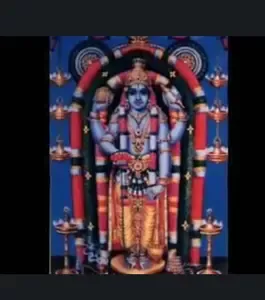
Custom Search
Book Review: Mohanaswamy
by Ananya Sarkar
(Kolkata, India)
Vasudhendra
Trns by Rashmi Terdal
Mohanaswamy
Harper Perennial. 2016
Pages 271. Price Rs 399
Mohanaswamy (first published in 2013 and translated in 2016) by self-admittedly gay writer Vasudhendra offers a deep and empathetic insight into the ordeals that homosexuals have to face in India. Written simply and lucidly, it deftly sensitizes us to the existence of the Other in society.
The book mainly centres on Mohanaswamy, a shy, sensitive man who is also a financially sound office-goer. It opens at the point when his long-time partner and roommate, Karthik, leaves him for a woman. Mohanaswamy is devastated. His heartbreaking plight and the apathetic, dismissive manner in which Karthik treats him make the reader’s heart go out to him. The scene where Mohanaswamy buys a pair of branded trousers as Karthik’s birthday gift and waits outside his office to simply give it to him is particularly touching. When Karthik emerges from office, it is with his fiancée and they ride away on his bike.The protagonist’s plight is then described thus: “Mohanaswamy stood still. He felt dead on his feet and had no energy to go home. Overcome by an utter sense of defeat, he sat on the kerbstone for a long time, grieving. Finally, he gathered himself and got up to go. On his way home, he saw a beggar by the roadside. He walked up to him, dropped the gift pack into his hands and walked off quickly.”Passages such as these are stirring and poignant.
There are movements back and forth in time that trace Mohanaswamy’s coming to terms with his non-conformist sexual orientation and the reactions of those around him as they begin to sense his “difference”.
As the author insightfully notes, there was no equivalent for the word “gay” in Kannada (and if we reflect, in any other Indian language for that matter). There exist only slangs that deride and mock people belonging to the particular community.The pressure to conform is seen when Mohanaswamy feels compelled to pass snide remarks on gay sex in the company of his male friends in college. At another point, heartbroken at being curtly dismissed by a boy he fancied, Mohanaswamy vows never to manifest his gay behaviour to avoid all problems.
Vasudhendra does not shy away from using sexually explicit description where necessary. For example, the scene of the two European men making love in a deserted temple is presented vividly. It is on seeing them that Mohanaswamy realises that his sexual orientation is not an aberration after all.
Each chapter of the book, except for “Anagha – The Sinless” and “Bed Bug”, deal with an important phase in Mohanaswamy’s life. The aforesaid chapters are, therefore, somewhat confusing as they have no direct correlation to Mohanaswamy other than portraying the problems of gender identity for those who do not manifest gender normative behaviour. Since the title of the book is Mohanaswamy, there is an expectation of the chapters/stories to be connected to the central character in some way.
From time to time, there are snatches of humour. When Dadapeer teaches Mohanaswamy to ride a bicycle, the former’s metaphors and similes amuse us. On a flight, when a stranger strikes up a conversation and enquires about Mohanaswamy’s love life, the latter diplomatically speaks of his male partner as a woman. Though such recourse is unfortunate, the way is which he does it has a tinge of humour.
Certain citations in the text have an endearing quality and create a lasting impression. For instance, at one point, Mohanaswamy ruminates on marriage: “Who said the ultimate purpose of marriage is to beget children? Who set these selfish rules that the child has to be a biological offspring? For a happy, peaceful life, a human being needs another human being as a companion. Isn’t it as simple as that?”At another juncture, the author remarks on the central character: “As a young man, people pestered him to get married, even offered to find him a bride. But when he came out of the closet, nobody had a heart large enough to advise him to find himself a boy and settle down.”
In the chapter “Bed Bug”, there is a sudden switch to the first-person point of view, which appears to be somewhat jarring. The reader is left confused about who “I” refers to – Mohanaswamy or the author himself. On pages 48 (“That’s why I never allow girls mount me.”)and 64 (“But Mohanaswamy had not succeed then.”)of the book, there are grammatical errors that have been overlooked by the translator and editor.
The cover of the book aptly depicts the theme of stigmatization and ostracism. The name “Mohanaswamy” is crossed out and native expletives are written all around the illustration of Mohanaswamy, which makes a powerful impression. The book is an insightful one which poignantly delineates the problems of being a homosexual in India. We need more Vasudhendras and their path-breaking courage to make the larger India revise its mindset and accept diversity in all its myriad forms.









